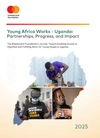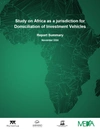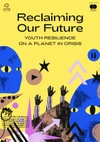How youth living with disabilities are earning platform livelihoods
This report documents the initial survey of 148 research participants, followed by 86 focus group discussions and in-depth interviews, exploring how young Kenyans are leveraging social media to sell goods and services.
In Kenya, studies have shown that 16% of adults make and receive payments for goods and services on mobile money and e-commerce. As the e-commerce industry grows, it represents an important new venue for many Kenyans to earn a living. For this reason, it is important that e-commerce applications are accessible—that they support people buying and selling goods and services regardless of their disability.
Accessible applications can best be achieved by implementing digital accessibility standards. Specifically, Kenya launched the Kenya Standard on Accessibility for ICT Products and Services for persons with disabilities in 2022, the first in Africa. The Standard on Accessibility is a step that guides all producers and service providers to make their products and services accessible to all, including people with disabilities.
This report is part of a larger research project on platform livelihoods and youth with disabilities in Kenya, conducted by inABLE and Technoprise Global in partnership with Caribou Digital and the Mastercard Foundation. Overall, the project aims to understand the opportunities and challenges young people with disabilities face when seeking to earn a living via digital platforms (i.e., social media and e-commerce platforms).
inABLE’s study concludes with a set of recommendations for designers and developers of digital products and services:
- Build ease of use by involving persons with disabilities at the beginning of the design process.
- Include more robust accessibility testing of digital products across different disability types.
- Promote inclusivity and adapt to the specific needs of different sellers with disabilities.
- Provide sensitization and community education to reduce discrimination of persons with disabilities engaging in e-commerce or social commerce.





